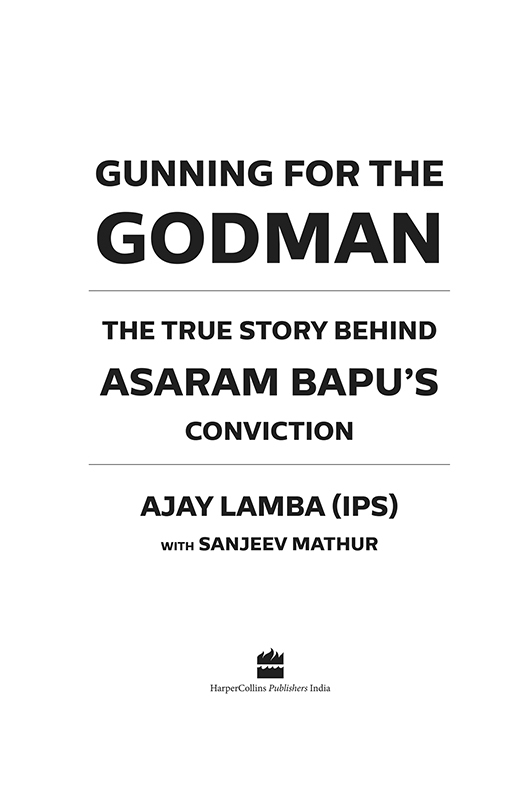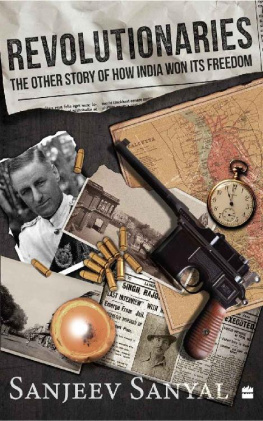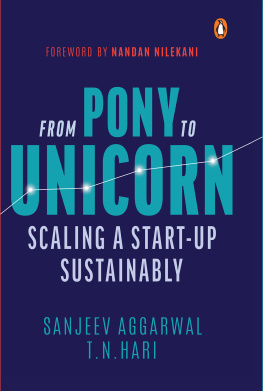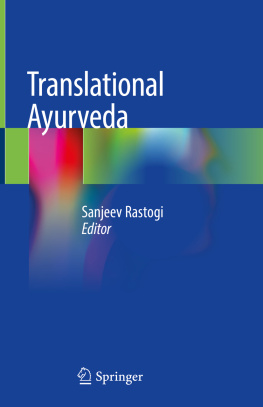W hen Asumal Sirumalani, son of Thaumal Sirumalani and his consort Mehgiba, was three, Shri Parasuramji Maharaj, the spiritual teacher of his family, had predicted that he would, one day, be a great saint who would show the light of spiritualism to the ignorant.
Today, Asumal, aka Asaram Bapu, serves life in prison at the Jodhpur Central Jail.
Convicted in 2018 of the rape of a minor (under the POCSO Act), its been quite a descent for this hard-working yogi who proclaimed to be immune to material and worldly pleasures, and worked to spread the tenets of Hinduism internationally. Quoted and feted by various political personalities, he had an enormous following across the world. The godman was also always able to guard himself against the many controversies that accompanied his rise to being saint-clbre. And the controversies were abundant, as they were diverse. The magnanimous compassion on display through the many pro-poor/youth welfare programmes not to forget the ones aimed at protecting the environment and improving the lives of tribals and even prisoners through the more than four hundred ashrams in India, and abroad, including in the US and Canada, was to prove to be only a facade. A well-calculated and organized PR exercise at best, but one which, in the end, would neither preserve nor protect him.

Asumal Sirumalani, son of Thaumal and Mehgiba Sirumalani, was born in the village of Berani, district Nawabshah, in Sindh (now in Pakistan), on 17 April 1941. On the day of his birth, a merchant is said to have stopped by their house and brought a swing for the newborn. That is because the day before, he had a strong feeling that a great saintly child shall be born in Thaumaljis family. His mother was his first teacher, narrating to him stories from the Ramayana, Bhagavad Gita and other scriptures. Asumal was also known to possess a remarkable memory.
Following Indias Partition though, the family moved to Ahmedabad, Gujarat, leaving behind all their assets and belongings in Sindh. To improve the familys financial condition, Asumals father decided to get into the coal- and wood-selling business in Ahmedabad. It is believed that for a short while, Asumal, too, worked in the same shop with his father.
Asumal studied up until only the third standard at the Jai Hind High School in Ahmedabad. When he was eleven, his father passed away, causing the boy to drop out of school. While the responsibility of running the family fell on the shoulders of his elder brother, Jethanandji, Asumal was subjected to much ridicule at home at the hands of his sister-in-law. Possibly to escape the daily reprimands, Asumal left home one day and reached Sidhpur, a town 50 kilometres away from Ahmedabad, where he accepted a job at a relatives grocery store. It is said that during his spare time, he would meditate in the Govind Madhav Temple there and it was here that he learnt Sanskrit. In fact, his propensity to meditate for hours started early. It was his mother who is said to have planted the seeds of meditation and prayer in Asumal.
After spending three years in Sidhpur, Asumal went back to Ahmedabad. The situation at home continued to be difficult and he had to take up another job to sustain the family. Ultimately, he started a small shop in Kolhapur with his brother, where they sold sugar. The business helped meet the basic needs of the family.
There were also his frequent escapades, ran away as he did to various ashrams from time to time. They began early. At the age of fifteen, he ran away to Ashoka Ashram in Bharuch, near Vadodara, just eight days before he was scheduled to be wedded to Lakshmi Devi. He did finally get married to her, but after much persuasion by his family members. They would eventually be parents to son Narayan Sai and daughter Bharati. His marriage is said to have been his familys way of stalling Asumals growing detachment [from] the world. That was, however, not to be. He would tell his wife that he wanted to be free from samsara and his wife would acquiesce. How could a golden chain bind a free bird?
Prior to him establishing himself as a religious leader, Asumal was involved in a variety of jobs: from selling liquor and tea to repairing cycles, his was a colourful life.
During 195859, Asumal was a tea-seller in Vijapur, a city in Gujarats Mehsana district. That tea stall was reportedly owned by one of his relatives, Sevak Ram, where Asumal is said to have worked for quite a long period of time. However, as mentioned in an article by Jay Mazoomdaar in Tehelka , a businessman claiming to know Gujarats Sindhi Samaj said that the tea stall by the main bus stand at Vijapur was used as a front to peddle illicit liquor. A couple of old-timers confirmed that a young Asaram was considered a miscreant of sorts in Maninagar, Ahmedabad. This, apparently, does not find a mention in Asarams official biography.
A September 2013 article in the Week quotes forty-six-year-old autorickshaw driver Mahesh Thakor, who remembered seeing Asaram sell country liquor on the banks of the Sabarmati. [Even] Kalaji Thakor, 75, a resident of Gandhinagar, has told the media that in the 1960s and 1970s when he made country liquor, Asaram used to buy it from him for reselling.
In 1959, Asaram and his relatives were accused of murder, under the influence of alcohol. However, with no evidence to back the accusation, he was let off scot-free. Reportedly, after this incident, Asumal left Vijapur and relocated to Ahmedabads Sardarnagar area.
During the 1960s, Asumal got into a partnership with four people and started the business of selling liquor. He profited much from this business. This was followed by a stint at a milk dairy.
In 1963, the family came to Ajmer upon the invitation of a relative, Dodhi Ustad. He, too, had crossed the border and settled there. Here, Asumal started transporting pilgrims from the railway station to the Ajmer Sharif Dargah on his tonga. In those days, when most of the tongas had wooden boards, Asumals had cushioned seats. The novelty of his tonga helped him ferry more passengers and, thus, earn more money. Once, during the annual Sarwar Urs, he also participated in a tonga race held between Ajmer and Sarwar.
He would return to Ahmedabad a few years later, in July 1971.
The seven-year period that preceded his starting his Ahmedabad ashram in 1971 was marked by an intense pursuit of Paramapada or ultimate realization. If the anecdotes listed on the ashrams website are anything to go by, Asumals life was devoid of material pleasures. Forests, hills, caves, temples, even grass were to be his abodes. From Kedarnath to Vrindavan, to the banks of the river Narmada at Moti Koral, to Deesa, Rishikesh, Gangotri, Uttarkashi, Badrinath there would be no one destination until he attained what he set out to.
At Vrindavan, he waited for forty whole days to be able to catch a glimpse of Swami Shri Lilashahji Maharaj, a great guru. He would eat lentils and sleep in a small 4.5 square feet room. Finally, Asumal did receive the gurus blessings. Thereafter, although he would return to Ahmedabad to continue his spiritual practices at home, within a few weeks he would leave home again.
Moti Koral, a colony of fishermen on the banks of the River Narmada, would be the next stop. Here, a local saint by the name of Shri Lalji Maharaj, moved by Asumals devotion, arranged for Asumal to stay in Datt Kutir of Ram Niwas (Lalji Maharajs ashram).















